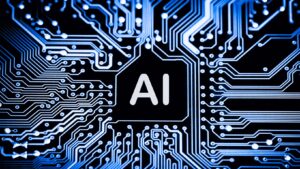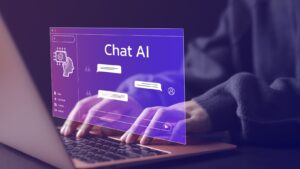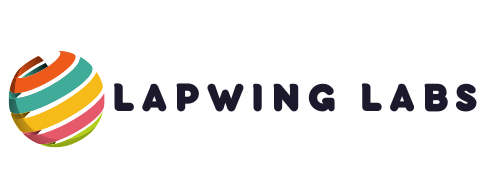 In the rapidly evolving world of technology, artificial intelligence (AI) stands at the forefront, promising to revolutionize how we live, work, and interact. Yet, as its capabilities expand, so do the complexities and challenges it faces. Among these, one issue consistently emerges as a significant hurdle, capturing the attention of experts and enthusiasts alike. This challenge not only tests the limits of AI’s current abilities but also raises important questions about its future development and integration into society.
In the rapidly evolving world of technology, artificial intelligence (AI) stands at the forefront, promising to revolutionize how we live, work, and interact. Yet, as its capabilities expand, so do the complexities and challenges it faces. Among these, one issue consistently emerges as a significant hurdle, capturing the attention of experts and enthusiasts alike. This challenge not only tests the limits of AI’s current abilities but also raises important questions about its future development and integration into society.
Understanding this key challenge is crucial for anyone keen on navigating the intricate landscape of AI. It offers insights into the technological, ethical, and practical obstacles that lie ahead. As AI continues to shape the future, recognizing and addressing this hurdle becomes paramount for developers, policymakers, and users alike, ensuring AI’s potential can be fully realized while mitigating its risks.
The Most Cited Challenge To Artificial Intelligence (AI) Is:
 The development and implementation of artificial intelligence (AI) face numerous challenges, each testing the technology’s capabilities and ethical boundaries. Among these, the most cited challenge is ensuring AI’s ethical use and addressing the potential for bias in AI systems. The most cited challenge to artificial intelligence (ai) is: emerges from the technology’s inherent reliance on data for learning and decision-making, highlighting the importance of scrutinizing the sources and quality of data feeding these systems. Ethical concerns, including privacy issues, decision transparency, and fairness, are paramount. Moreover, the difficulty in eliminating bias presents a significant obstacle for developers and users alike. Tackling this challenge requires a multifaceted approach, involving careful dataset curation, algorithmic transparency, and continuous monitoring for biased outcomes.
The development and implementation of artificial intelligence (AI) face numerous challenges, each testing the technology’s capabilities and ethical boundaries. Among these, the most cited challenge is ensuring AI’s ethical use and addressing the potential for bias in AI systems. The most cited challenge to artificial intelligence (ai) is: emerges from the technology’s inherent reliance on data for learning and decision-making, highlighting the importance of scrutinizing the sources and quality of data feeding these systems. Ethical concerns, including privacy issues, decision transparency, and fairness, are paramount. Moreover, the difficulty in eliminating bias presents a significant obstacle for developers and users alike. Tackling this challenge requires a multifaceted approach, involving careful dataset curation, algorithmic transparency, and continuous monitoring for biased outcomes.
The Evolution of Artificial Intelligence

The most cited challenge to artificial intelligence (ai) is: has undergone remarkable evolution since its inception. From simple algorithms capable of performing basic tasks to sophisticated systems that learn and adapt, AI’s journey reflects a trajectory of exponential growth and complexity. Early AI endeavors focused on rule-based systems that executed tasks based on predefined instructions. Today, advancements in machine learning and deep learning have propelled AI into new frontiers, enabling it to process vast amounts of data, recognize patterns, and make decisions with minimal human intervention. This evolution underscores the increasing sophistication and potential of AI technologies, alongside the escalating challenges in ensuring their ethical and unbiased implementation.
Key Domains Impacted by AI
 Artificial intelligence has made significant inroads into various sectors, revolutionizing the way tasks are performed and services are delivered. Key domains impacted by AI include:
Artificial intelligence has made significant inroads into various sectors, revolutionizing the way tasks are performed and services are delivered. Key domains impacted by AI include:
Healthcare: AI applications in healthcare, such as diagnostic tools and personalized medicine, enhance patient care but also raise concerns regarding data privacy and algorithmic biases that could affect treatment outcomes.
Finance: In finance, AI transforms operations through fraud detection, risk management, and personalized banking services, challenging the industry to maintain algorithm transparency and fairness in decision-making processes.
Transportation: The development of autonomous vehicles epitomizes AI’s impact on transportation, introducing efficiencies and safety improvements while confronting ethical dilemmas in programming decision-making protocols.
Manufacturing: AI-driven automation in manufacturing boosts productivity and innovation but necessitates addressing workforce displacement and re-skilling challenges.
The pervasive influence of AI across these domains illustrates its transformative potential but also reinforces the need to address the ethical challenges and biases inherent in AI systems. These sectors exemplify the delicate balance between harnessing AI’s benefits and mitigating its risks.
The Most Cited Challenge to Artificial Intelligence (AI) Is: Ethics and Bias
The Duality of AI: Potential and Peril
 The most cited challenge to artificial intelligence (ai) is: stems from its duality—while AI offers unprecedented potential for innovation across industries, it concurrently presents significant ethical challenges and biases. This duality underscores the complexity of designing AI systems that can enhance societal progress without infringing on individual rights or perpetuating inequality. AI’s potential to improve healthcare outcomes, streamline manufacturing processes, and revolutionize transportation comes with the peril of misused data, biased algorithms, and decisions made without human oversight.
The most cited challenge to artificial intelligence (ai) is: stems from its duality—while AI offers unprecedented potential for innovation across industries, it concurrently presents significant ethical challenges and biases. This duality underscores the complexity of designing AI systems that can enhance societal progress without infringing on individual rights or perpetuating inequality. AI’s potential to improve healthcare outcomes, streamline manufacturing processes, and revolutionize transportation comes with the peril of misused data, biased algorithms, and decisions made without human oversight.
Navigating the Ethical Minefield
 Navigating the ethical challenges in AI necessitates a comprehensive approach that includes stakeholder engagement, transparency, and accountability. Ethical AI requires developers to engage with diverse groups to understand the multifaceted implications of AI technologies. Transparency in AI algorithms and decision-making processes helps demystify operations, fostering trust among users and stakeholders. Moreover, implementing accountability measures ensures that mechanisms are in place to address any harm caused by AI systems. This robust framework helps in guiding the development and deployment of AI technologies in a manner that respects human dignity and rights.
Navigating the ethical challenges in AI necessitates a comprehensive approach that includes stakeholder engagement, transparency, and accountability. Ethical AI requires developers to engage with diverse groups to understand the multifaceted implications of AI technologies. Transparency in AI algorithms and decision-making processes helps demystify operations, fostering trust among users and stakeholders. Moreover, implementing accountability measures ensures that mechanisms are in place to address any harm caused by AI systems. This robust framework helps in guiding the development and deployment of AI technologies in a manner that respects human dignity and rights.
Mitigating Bias in AI Systems
 Mitigating bias in AI systems is imperative to harness the technology’s full potential without exacerbating existing social inequalities. Bias in AI often originates from the data on which models are trained, reflecting historical and societal biases. To address this, developers must curate diverse and representative datasets that minimize embedded prejudices. Additionally, continuous monitoring for biases and regular updates of AI models are crucial to ensure fairness and neutrality. Implementing these strategies helps in building AI systems that are not only innovative but also equitable and inclusive, thereby addressing one of the most cited challenges to artificial intelligence: ethics and bias.
Mitigating bias in AI systems is imperative to harness the technology’s full potential without exacerbating existing social inequalities. Bias in AI often originates from the data on which models are trained, reflecting historical and societal biases. To address this, developers must curate diverse and representative datasets that minimize embedded prejudices. Additionally, continuous monitoring for biases and regular updates of AI models are crucial to ensure fairness and neutrality. Implementing these strategies helps in building AI systems that are not only innovative but also equitable and inclusive, thereby addressing one of the most cited challenges to artificial intelligence: ethics and bias.
Technological Hurdles in AI Development
The journey of AI from a niche research subject to a foundational technology integrated across various sectors has been monumental. Yet, technological hurdles persist, presenting significant challenges in the development and deployment of artificial intelligence systems.
Limitations in Current AI Algorithms
 Artificial intelligence algorithms, particularly those driving machine learning and deep learning models, have revolutionized the way data is analyzed and interpreted. However, these algorithms come with inherent limitations. First, they require large amounts of data to learn and make accurate predictions. In scenarios where data is sparse or complex, the performance of these algorithms drops significantly. Secondly, they often operate as “black boxes,” offering little to no insight into how decisions are made. This lack of transparency can be a significant barrier, especially in sectors where explainability is critical, such as healthcare and criminal justice.
Artificial intelligence algorithms, particularly those driving machine learning and deep learning models, have revolutionized the way data is analyzed and interpreted. However, these algorithms come with inherent limitations. First, they require large amounts of data to learn and make accurate predictions. In scenarios where data is sparse or complex, the performance of these algorithms drops significantly. Secondly, they often operate as “black boxes,” offering little to no insight into how decisions are made. This lack of transparency can be a significant barrier, especially in sectors where explainability is critical, such as healthcare and criminal justice.
Current AI algorithms also struggle with transferring knowledge across different tasks, a concept known as transfer learning. Though strides have been made, the ability of AI systems to generalize knowledge and apply it in varied contexts remains limited.
The Quest for General AI
 The distinction between narrow AI, which is designed to perform specific tasks, and general AI, which would possess the ability to understand, learn, and apply intelligence across a broad range of tasks, is significant. Today, most AI systems are examples of narrow AI. They excel in their designated tasks but lack the versatility and adaptability of the human mind.
The distinction between narrow AI, which is designed to perform specific tasks, and general AI, which would possess the ability to understand, learn, and apply intelligence across a broad range of tasks, is significant. Today, most AI systems are examples of narrow AI. They excel in their designated tasks but lack the versatility and adaptability of the human mind.
The quest for general AI, also referred to as Artificial General Intelligence (AGI), is one of the most ambitious and challenging aspects of AI research. Achieving AGI would mark a seminal moment in the field, bringing AI systems closer to mimicking the breadth and depth of human intelligence. However, developing algorithms that can generalize across domains, exhibit robust common-sense reasoning, and learn new tasks with minimal input remains a significant challenge.
Data Privacy Concerns
 As AI technologies continue to evolve, so do concerns regarding data privacy. The reliance on massive datasets for training AI algorithms raises questions about the sourcing, handling, and securing of this data. Ensuring the privacy and protection of individual data points becomes increasingly challenging as AI systems become more intertwined with everyday activities.
As AI technologies continue to evolve, so do concerns regarding data privacy. The reliance on massive datasets for training AI algorithms raises questions about the sourcing, handling, and securing of this data. Ensuring the privacy and protection of individual data points becomes increasingly challenging as AI systems become more intertwined with everyday activities.
Data privacy concerns are further compounded by the opaque nature of many AI systems. Without clear insight into how data is being used or how decisions are made, gaining public trust becomes difficult. Legislations like the General Data Protection Regulation (GDPR) in Europe have set precedents for the kind of transparency and control over personal data that is expected. However, balancing the hunger of AI systems for data with the imperative of safeguarding individual privacy rights remains a pivotal challenge in the advancement of AI technologies.
Economic and Societal Impacts
 The journey through the complexities of artificial intelligence reveals a landscape filled with potential and pitfalls. Ethical concerns and biases stand at the forefront of challenges, demanding a careful balance between innovation and the protection of societal values. As AI continues to evolve, the quest for Artificial General Intelligence and the resolution of data privacy issues remain critical hurdles. Yet, it’s the ethical implementation and bias mitigation that hold the key to unlocking AI’s true potential. By fostering diverse datasets and ensuring transparency in AI’s decision-making processes, the path towards a more equitable and innovative future becomes clearer.
The journey through the complexities of artificial intelligence reveals a landscape filled with potential and pitfalls. Ethical concerns and biases stand at the forefront of challenges, demanding a careful balance between innovation and the protection of societal values. As AI continues to evolve, the quest for Artificial General Intelligence and the resolution of data privacy issues remain critical hurdles. Yet, it’s the ethical implementation and bias mitigation that hold the key to unlocking AI’s true potential. By fostering diverse datasets and ensuring transparency in AI’s decision-making processes, the path towards a more equitable and innovative future becomes clearer.



